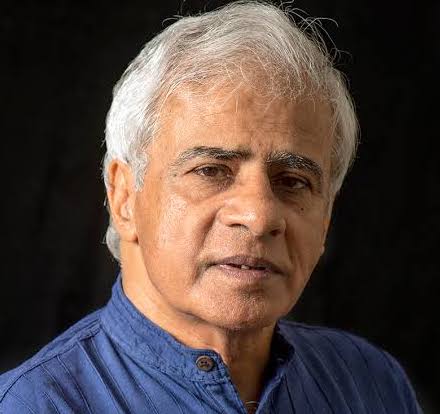Vivan Sundaram, an artist whose leadership was instrumental for the deep commitment of recent generations of Indian artists to a secular and pluralist state, passed away at age seventy-nine on March 29 in New Delhi. As his fellow artist Nalini Malani said in tribute, Sundaram was “an artist who truly lived the ideology he believed in.”
That ideology had its genesis in the student protests of 1968 across Europe that he witnessed while studying as a Commonwealth Scholar at Slade School of Fine Art in London. “I am a child of May 68, the kind of freedom it gave. Something in that historical moment urged me to continuously question and shift, thematically, politically and linguistically, in terms of art.”
In the 1980s Sundaram turned from the modernist internationalism that had dominated Indian art to an interdisciplinary, socially and politically engaged approach. Rooted in installation, his work was critical in setting off a powerful shift in the form and content of representation of contemporary Indian art in responding to the legacy of colonialism, communal violence, poverty, the inequities of entrenched class and caste systems to religious fundamentalism and the political rise of Hindutva.
Equally an activist and organizer, Sundaram founded the Kasauli Art Centre (1976-1991), a residency program designed to explore common ground between artists of different disciplines. He was a co-founder of The Journal of Art & Ideas and a trustee of the Safdar Hashmi Memorial Trust (SAHMAT), a nationwide network of Indian artists, writers, filmmakers, performers, musicians, academics, critics and intellectuals formed in 1989 to work on issues of secularism and human rights.
Sundaram, who exhibited extensively in India and abroad, had a personal connection to Montreal through his association with the artist-run-centre Oboro, where his work was shown twice. The first time was an exhibition of his installation House/Boat: Sculpture in 1996 that later travelled to Western Front in Vancouver. In 2001 he was part of the group show Secular Practice: Recent Art from India, an exhibition that examined developments in contemporary Indian art and cultural discourse in the context of concerns for Indian secularism.
Sundaram is survived by his wife Geeta Kapur, an art critic and theorist who shared with her husband a leading role in contemporary Indian art and the international regard it has achieved in recent years.
Peter White is an independent curator and writer in Montreal. He has organized many exhibitions of contemporary and historical art and played a key role in enabling us to see Vivan’s work and the work of other Indian artists, including Nalini Malani, Rummana Hussain and Atul Dodiya in Montreal and elsewhere in Canada. As part of the group Hoopoe Curatorial, Peter’s curatorial work has included, Dust on the Road (2000), organized in collaboration with SAHMAT (India) and a presentation of Canadian art publications at the Calcutta Bookfair (1999) in collaboration with Seagull Books.
 Log in
Log in









